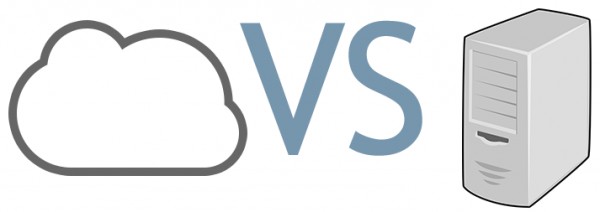
Hardware data storage: pros and cons
- The best thing about hardware for data storage and back-up is that it’s within your control.
“A physical server or external drive that you keep in-house can typically protect your data from hacking and loss of privacy,” Gregory said.
- For example, you don’t have to worry about hackers the way you might with a cloud storage solution. You decide where your server or drive is located and, therefore, who can access it. You can physically see where your data is stored.

- Also, physical hardware can’t be accessed from another location. This could be an issue if you frequently work on the road or have employees who work remotely and need to access the data. And if you do configure the server or drive to be accessed remotely, there is a security risk related to opening up that connection, Gregory says.
“This method of backup can also be very costly, even more so if you have multiple computers to protect,” Gregory adds.
- While small external hard drives can be purchased inexpensively, physical hardware isn’t necessarily a cost-effective data-storage solution.
- You may need to purchase multiple drives or servers if you have to protect more than one computer or need them in more than one physical location. And you could find yourself quickly filling up your storage device if your store of data is particularly large.
Cloud storage: pros and cons
- Ease of use is one of the main advantages of cloud solutions for data storage.
"Setting it up is often as simple as signing up for an account online and running through their back-up process" Gregory says.
- Back-ups usually can be automated so they are done regularly, and can be scheduled for a convenient time (overnight, for example). You also avoid the ongoing maintenance costs you face with hardware.
- Cloud storage is also usually a cost-efficient solution for data storage.
Gregory says. “Cloud storage requires much less of an investment than physical storage,” she says, particularly if your needs are small to begin with.
- Cloud storage plans can easily be scaled up or down as your needs change.
- And if you are one of the increasing number of entrepreneurs who works remotely at least sometimes, having your data stored and backed up on the cloud means you can access it from anywhere with an Internet connection. It also makes it easy for you to share that data with employees and clients around the world.
- But while most cloud services are quite secure, nothing is absolute.
“While generally very secure and protected with at least 256-bit encryption,” Gregory says, “moving to the cloud makes the possibility of hacking greater since you do not solely control the storage.”
- Talk to other entrepreneurs and businesses in your industry to find out what they’re using for cloud storage, and do some research to ensure the cloud provider you choose is taking appropriate security measures. Pick a reputable company with experience in the business.
- Find out what type of technical support is offered by the cloud service, and ask about any possible restrictions on the size or type of files that can be uploaded. And keep in mind that you won’t be able to access your data in the case of a lost Internet connection or downtime on the service’s end.
If you currently use a hardware-based solution for data back-up and storage—or don’t have a solution of any kind in place yet—consider a cloud-based option, especially if set-up costs are a concern, Gregory says.
“Most small businesses can use the cloud in some capacity,” Gregory says. “The only businesses that may want to avoid the cloud are those with very sensitive client information, or those who store HIPPA data.”

- The Cloud, for all its amenities, can be pretty inflexible. Good luck if you want to ensure zero router hops between your big data nodes, or isolate entire networks, or have visibility into what sort of hardware you’re really running on. If you do convince your provider to color outside the lines, you will find yourself slipping through the cracks of their scripted and automated support system. Having our own data center gives us greater control and flexibility to customize and optimize the hardware to match our software.
- Cloud networks and virtual machines are performing better every day. But they are generally shared among many customers. This can lead to poor performance, especially during critical holiday seasons. Having our own data center allows us to manage those busy seasons, and have precise control over our performance characteristics throughout the year.
- Finally, and some people are surprised by this, the Cloud is expensive! And not just in a way that can be offset by employee costs. Even virtual machines need a sysadmin’s touch from time to time. At a certain scale, running our own data center costs far less than running in the cloud, especially for big data applications.
